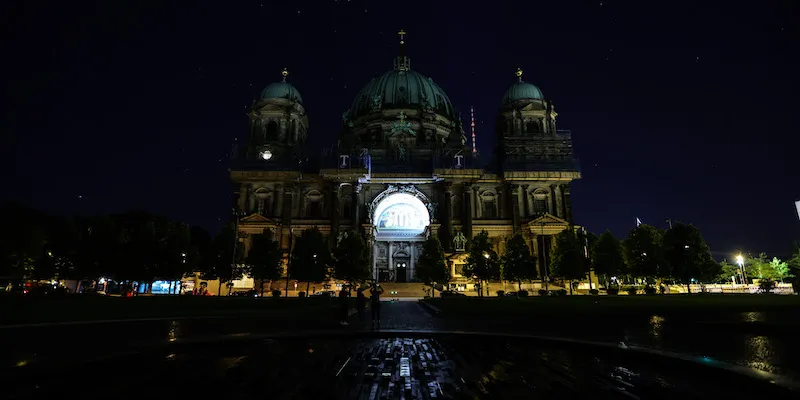Germany is the first European country in consuming Russian gas. Before the invasion of Ukraine, he bought more than half of the gas he used from Russia and planned to import more through it new pipeline. Now I must Reduce consumption by 15 percent Like other EU countries, it also started taking precautions to anticipate any new cuts or blocks that Russia decides. Especially in winter: about half of German homes are heated by gas (a third of the fuel consumption is due to homes), and if temperatures are particularly low in the winter months, this can be a big problem.
Measures are taken at the national and local levels. Some German cities give residents economic incentives to reduce their consumption, while others have reduced street lighting and the use of traffic lights; Many municipalities have lowered the temperature of public swimming pools. In Berlin, the evening and night lights that illuminate the exterior of 200 monuments and historical buildings of tourist interest have been turned off.
The city he presented at the moment The most detailed energy saving plan is the Hannover Planin the north of the country. Banned the use of hot water in public bathrooms and showers in swimming pools, gyms and gyms, turned off public fountains, turned off external lights for City Hall and museums, and banned the use of portable air conditioners and turning on heating systems before the end of September.
At the national level, efforts have been made for months to reduce dependence on Russian gas. Economy Minister Robert Habeck has made some difficult decisions for a member of the Green Party, such as Coal-fired power plants reopen – It’s more polluting than gases, but Germany has a lot of it. The government also decided to start buying from other countries such as Qatar and the United States Liquefied Natural Gas (also called LNG) And investing in building factories that would allow their use, as the state did not have any of them.
In the meantime, it seems that among the greens Divisions are created Among those who might be willing to delay the final shutdown of Germany’s still-active nuclear power plants, scheduled for the end of the year, a few months ago, and those who don’t want to know. Shutting down nuclear power has long been one of the Greens’ main goals in Germany and the issue is felt above all in Bavaria, where a power plant near Munich produces 12 percent of the Earth’s electricity and tanks of natural gas are out in private stock.
Habek also made appeals to residents to reduce gas consumption, suggesting shorter and shorter showers and less use of facilities to heat and cool rooms. In part, those calls may have worked: The Federal Energy and Water Association (BDEW) said nearly 15 percent of the gas is used nationwide compared to the same time last year. However, the increase in energy costs also has to do with it, which has doubled since the end of 2021 and will increase again from October 1, with the introduction of a “solidarity tax” of 5 cents per kilowatt-hour, which aims to partially offset the increase in costs for importers Gas.
In winter, it will be difficult to impose restrictions on heating, and in the meantime, electric heaters in stores in many cities have run out. To counter rising costs for families, Chancellor Olaf Schultz has promised to increase housing subsidies and take measures to avoid evictions who are unable to pay their heating bills.
Industries, which consume a third of the gas used in Germany, were also invited to try to reduce their consumption and some results were achieved. Mercedes-Benz Motor Company said, on Wednesday, that it has reduced its gas use by 10 percent and could even halve it without curtailing its industrial activity.
One solution to reduce office consumption this winter may be to rely more on working from home, which has already been tested with the coronavirus epidemic: Abandoning offices could save energy by 5 percent according to some studies. Meanwhile, some politicians in Bavaria They ask themselves If, to consume less energy, it was necessary to cancel Oktoberfest for the third year in a row, the traditional beer festival that takes place between September and October in Munich and in many other cities.

“Reader. Travel maven. Student. Passionate tv junkie. Internet ninja. Twitter advocate. Web nerd. Bacon buff.”




